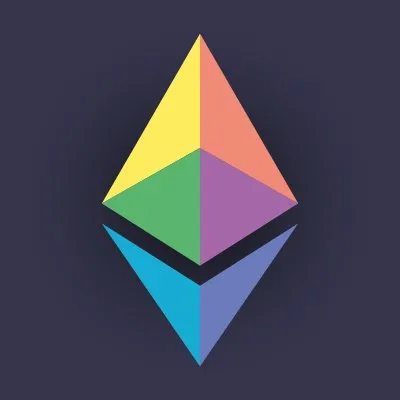Since Bored Apes minted out in April 2021, their influence has loomed large. Thanks to some very aggressive public promotion, Bored Apes are nearly synonymous with the NFT space to many outside the industry and adjacent to it.
That notoriety has pushed the Apes parent company, Yuga Labs, into a very critical industry role, and it’s fair to say that expectations have been quite high for almost every project they’ve touched.
Most of the high community expectations have centered around their NFT metaverse called Otherside. The effort was announced in March 2022 as a gaming metaverse where holders of Bored Apes and other NFTs could play in massive multiplayer experiences.
The initial interest was massive.
The April 2022 mint for Otherside land plot Otherdeeds caused a historic deluge of transactions that burned over $150M worth of ETH, one of the largest burn events in  Ethereum L1Ethereum is a global platform for decentralized applications and finance.View Profile” class=”stubHighlight”>Ethereum history. But since that event, those Otherdeeds have been gathering dust and declining in value on secondary marketplaces.
Ethereum L1Ethereum is a global platform for decentralized applications and finance.View Profile” class=”stubHighlight”>Ethereum history. But since that event, those Otherdeeds have been gathering dust and declining in value on secondary marketplaces.
During this time, Yuga has run a couple of Otherside test demos, with another slated for this week. They’ve also partnered with outside development studios, like AccelByte, Bad Rhino Studios, and Hadean, to get the project off the ground
But that’s the thing. Despite all of Yuga’s resources and its technical partners, Otherside is still in development and will be for the foreseeable future, and Otherdeed holders still don’t have the clearest idea of what they bought.
Some news to share:
I am stepping back in as CEO of Yuga Labs. Wylie and I are grateful for all the contributions and operational rigor Daniel has brought to the company, and appreciate his thoughtfulness and mentorship over the past year. I’m reinvigorated to be taking the…
— Garga.eth (Greg Solano)
(@CryptoGarga) February 21, 2024
In a sign of potential issues internally, the Activision exec that Yuga brought in as CEO to make Otherside into the, “entry way into web3,” was replaced last week after less than a year on the job.
Great things can take time, and Yuga is clearly looking to tackle some big technical ambitions, but they are also facing an uphill battle in meeting the community expectations that it very aggressively set for itself. Their issues here can be attributed to the weight of their own success, their increasingly disjointed umbrella of projects, and their lack of game studio roots.
It’s hard to build a great multiplayer game, even one that just follows other formulas for success. Ask any game developer out there.
Yuga’s problems with expectation setting have been all the more visible because other upstart crypto gaming projects have already been able to achieve early success without nine-figure land sales weighing on their development like Otherside has dealt with. One such effort is Nifty Island, a virtual world and NFT gaming platform that supports player-created content and multiple game modes, from battle royales to races.
It’s an interesting contrast point with the Otherside, as the Nifty Island open beta just arrived last month and has been actualized with far fewer resources than Yuga boasts and just a one-year head start. More importantly, after playing the beta some, I think Nifty Island is definitely in the ballpark of what Yuga wishes it already had in Otherside. The game modes are all fun, in-game quests abound, NFTs from dozens of different collections are usable as avatars, and every player gets a free island to customize.
Its rise demonstrates how a small and focused team can outcompete against bigger and more resourceful competitors. This gaming platform is the kind of metaverse experience the NFT space has been calling for since 2021.
Otherside certainly has higher expectations to meet than a small indie game does, but with most users who bought Otherdeeds for the title already down more than 2 ETH a piece in implied value, Yuga might have higher expectations to craft a hit with Otherside than any AAA game developer ever has.
Nifty Island’s still early-stage success isn’t just a case study, as it is playable today.
As the metaverse continues to evolve, the lessons learned from both Nifty Island’s success and Otherside’s ongoing journey towards shipping will undoubtedly impact the strategies that new projects take to experiment, build in public and set appropriate community expectations.
Read More: www.bankless.com









 Bitcoin
Bitcoin  Ethereum
Ethereum  Tether
Tether  XRP
XRP  Solana
Solana  USDC
USDC  Dogecoin
Dogecoin  Cardano
Cardano  TRON
TRON  Lido Staked Ether
Lido Staked Ether  Wrapped Bitcoin
Wrapped Bitcoin  Sui
Sui  Chainlink
Chainlink  Avalanche
Avalanche  Stellar
Stellar  LEO Token
LEO Token  Toncoin
Toncoin  Shiba Inu
Shiba Inu  Hedera
Hedera  USDS
USDS  Wrapped stETH
Wrapped stETH  Bitcoin Cash
Bitcoin Cash  Hyperliquid
Hyperliquid  Litecoin
Litecoin  Polkadot
Polkadot  WETH
WETH  Binance Bridged USDT (BNB Smart Chain)
Binance Bridged USDT (BNB Smart Chain)  Bitget Token
Bitget Token  Monero
Monero  Ethena USDe
Ethena USDe  WhiteBIT Coin
WhiteBIT Coin  Pi Network
Pi Network  Wrapped eETH
Wrapped eETH  Coinbase Wrapped BTC
Coinbase Wrapped BTC  Pepe
Pepe  Aptos
Aptos  Dai
Dai  Uniswap
Uniswap  Bittensor
Bittensor  NEAR Protocol
NEAR Protocol  OKB
OKB  sUSDS
sUSDS  BlackRock USD Institutional Digital Liquidity Fund
BlackRock USD Institutional Digital Liquidity Fund  Ondo
Ondo  Gate
Gate  Internet Computer
Internet Computer  Aave
Aave  Ethereum Classic
Ethereum Classic  Tokenize Xchange
Tokenize Xchange